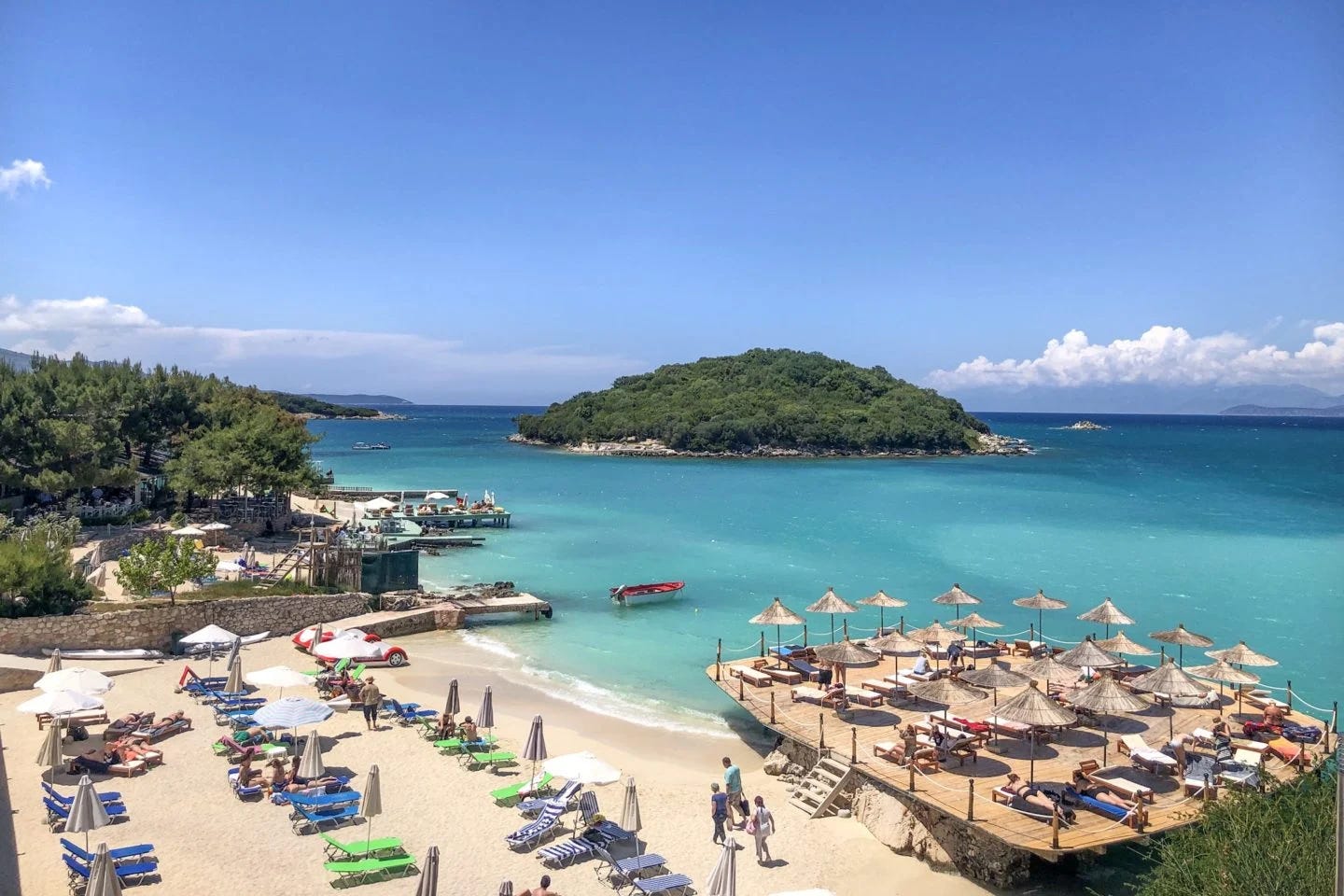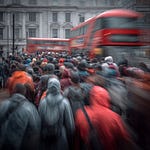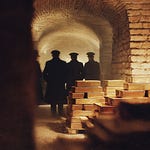In my late teens and early 20s I was obsessed with beaches. I had always liked them, we all do, but I think it was a trip to Thailand in 1989 that triggered the obsession. Being on Koh Phangan back then when there was barely any power on the island - you had to go to back to Koh Samui for the full moon parties - smoking joints, lounging about in hammocks, philosophising with my mates, talking about our futures, watching the world go by, swimming, snorkelling, playing endless games of frisbee and volleyball on the white sands as sunny days drifted into beautiful sunsets, is a time I will always cherish.
After that trip, I used to endlessly contemplate beaches - didn’t matter if they were tropical or Cornish, Mediterranean or in Bournemouth - they all have something to appreciate and enjoy. As a young writer trying to get stuff published, I wrote and wrote about them. Then, in 1996, The Beach was published. Alex Garland’s debut novel caught a zeitgeist and took the world by storm, eventually becoming a film with Leonardo di Caprio. Anything beach related would now be copycat. Garland owned the subject and I had to move on.
I always wanted to end up on a tropical beach somewhere. I’ve left it a bit late, but the dream still lingers, though, like many a dream of my youth, it’s somewhat faded.
Today, generally speaking, the thought of a really crowded beach, packed with sardine holidaymakers, fills me with a certain amount of horror. It probably does you. I’d pick the Maldives over St Tropez pretty much any day of the week (even though I’ve never actually been to the Maldives). As for Bournemouth beach in a heatwave, I’ll almost certainly pass.
A Free Market Success Story
This week my two sons and I have come to Ksamil in the south of Albania for a boys’ holiday. I put a post on Twitter - should we go to Bulgaria and the Black Sea or Kotor in Montenegro? Something Tom Winnifrith said persuaded me to come to Albania instead. I liked the idea of flying to Corfu and then getting the ferry across. And I heard the beaches were nice.
We arrived after a journey that was a lot more drawn out than I would have liked, went for an early evening stroll and oh, how my heart sank. The beaches were probably the most crowded I have ever seen. Crap music blared out. You seem to have to hire sunbeds, which cost €25 - there are three of us, have I got to pay €75 a day just to get on the beach? Negativity prevailed.
The following morning I spoke to Ilir, the extremely helpful proprietor of the 6 Milje hotel, where we are staying.
“What do people normally do with their phones when they go swimming?” I asked him.
“You have to understand, the beaches here are not like the beaches in Italy or Spain, public beaches, and maybe your stuff isn’t safe,” he said. “Here in Albania nothing gets stolen”.
I raised a doubtful eyebrow.
“The beaches are privately owned,” he explained.
He had said the magic words and my ears pricked up.
“It means you have to pay, ha ha ha,” he laughed. “They want the money. But everything is taken care of.”
I couldn’t help myself.
“Are you familiar with the Tragedy of the Commons?” I asked. “When everybody uses the resource but nobody looks after it, because nobody owns it. You see it in the oceans, in the common parts of social housing -”
“Yes, yes,” he said dismissively.
I don’t know how these Albania beaches were procured in the first place. The way assets were seized after the fall of communism in Russia was not exactly salubrious. I expect something similar happened in Albania as communism went down here. Ilir agreed.
“Probably,” he said. “But somebody has to pay,” he went on. “They made a big investment. Before Ksamil was just rocky. They brought in all the sand.”
Beach replenishment is very expensive, my two sons then told me with great authority. They had both studied it in geography. They went on to discuss whether it is beach replenishment or beach nourishment.
I now approached my first day on an Albanian beach looking at things through a more optimistic (and biased) lens.
Each stretch of beach does seem to be owned by a different business, often linked to a restaurant or bar nearby. The businesses are competing every day to fill their sun loungers, so each is trying to make its bit of beach as attractive as possible. The result is clean, well kept beaches with an enormous range of sun loungers - from premium sun loungers a yard from the sea with curtains around them for privacy and champagne service to bargain basement folding metal things at the back (not that bargain basement). Whichever stretch of beach you go to, you are politely greeted by that section’s “head of loungers”. He sorts out your umbrella, he asks you if there is anything else you need, he will keep an eye on your stuff. It turns out €20 for a pair of loungers plus an umbrella is about the going rate for the mid-range stuff. I’ll pay that just to know my cash and phone are safe. (This remains, by the way, very much a cash economy - all hail Albania - both lek and euros are accepted).
There are a gazillion bars, restaurants, stalls, as well as the occasional travelling fruit or recently-barbecued-corn-on-the-cob vendor. Some of the bars/restaurants/stalls are for the loaded (of which there are quite a few - I think this place might be Albania’s answer to St Tropez: there are a lot of glamorous, beautiful people) others are for the skint or the stingy. Some play loud music, others are quite mellow and quiet.
The stretch of water in front of each beach is filled with enticing things to do. There are diving boards, paddle boards, luxurious floating rafts with sun loungers, one stretch of beach has lanes laid out like an Olympic swimming pool so people can train, there are masks and snorkels for hire, pedalos, pedalo taxis that will take you out to the nearby islands and rafts if you don’t want to get wet. The swimming areas are clearly marked by buoys, so that boats and jet skis pose no risk to swimmers. There is even an entire floating, inflatable water slide assault course thing. Sounds horrendous, but I defy you, if you are an eleven-year-old boy, not to absolutely love it. Couples are catered for. The old are catered for. Young families are catered for. The water is lovely.
This might not be the remote Maldives eco experience. I don’t think I have ever in my life seen such crowded beaches, except perhaps at midnight on New Year’s Eve in Rio de Janeiro on the Copacabana. The circumstances there were slightly different. Environmentalists will probably hate it. It is highly developed. It is not the wild and desolate beach many might hope for. But it is providing a lot of pleasure to a lot of people, using a minimum amount of space, while providing opportunities to a lot of other people, making them prosperous and lifting living standards. The locals here work extremely hard - they are very ambitious. In my hotel, the staff are still working when I go to bed at 11 and when I am up the next morning at 7 the same staff are already laying out breakfast.
There are tourists here from Albania itself. There are lots of Italians, very few from Greece, quite a few from the UK, France, Scandinavia and Germany. I’ve heard a lot of Eastern European accents that I cannot place. It’s a real hotspot and it is booming.
In short, it’s an example of a free market at work, private property rights, the benefits of competition, and all those things that libertarians such as myself advocate for.
It’s cheaper than the UK, but not as cheap as you might expect Albania to be. This holiday is going to cost me a lot more than I anticipated. When I complained about the cost of aftersun, the woman in the shop snapped back at me quite articulately telling me that the people here only have two months a year to make money. I have all that other time. My sons, meanwhile, whose finger is on the pulse in a way that mine is not, told me that my ideas of prices are way out of date. I guess that’s inflation for you.
“How corrupt is it?” I asked Ilir.
“Sometimes people come to the hotel asking for protection money, but we always make sure they don’t come on the property. In your country maybe you have a straight line between what you can and cannot do. In Albania the line is very squiggly.”
I am sure there are villainous types, who don’t deserve it, who are making fortunes out of this incredibly vibrant economy. Villainous they may or may not be, but they were also entrepreneurial. I am sure there are many things that people who know more about the history of Southern Albania than me could find fault with. It is not perfect. Nothing is. But it is also testament to what free markets can do and how quickly, if left alone.
My show on gold at the Edinburgh Fringe this August will take place at Panmure House, the room in which Adam Smith wrote Wealth of Nations. You can get tickets here.
Interested in buying gold to protect yourself in these uncertain times? My recommended bullion dealer is The Pure Gold Company, whether you are taking delivery or storing online. Premiums are low, quality of service is high. They deliver to the UK, US, Canada and Europe, or you can store your gold with them. More here.













